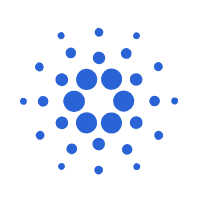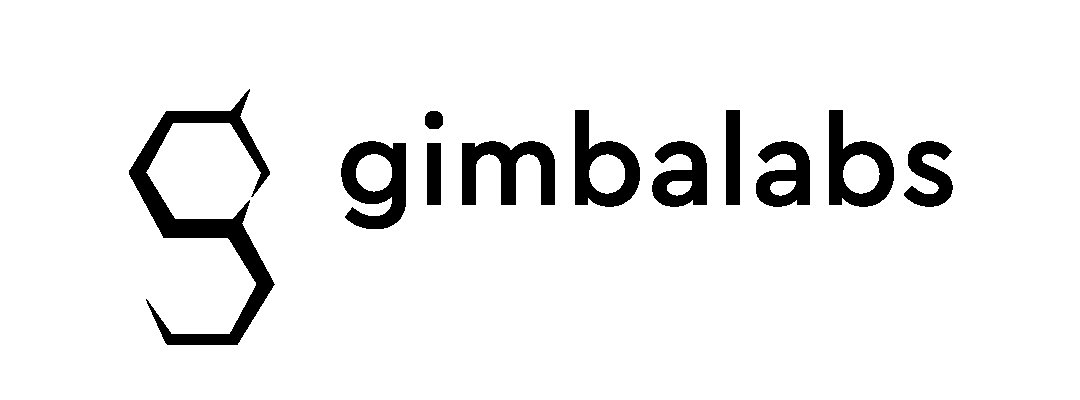Gimbalabs Interview
For the January edition of the Spotlight Article, we interviewed James Dunseith, Co-Founder of Gimbalabs.
Can you introduce yourself
My name is James Dunseith. I met Juliane Montag and Roberto Carlos Morano during Fund 1 of Project Catalyst, and we founded Gimbalabs with a Fund 2 Catalyst proposal.
Before getting into this work, I taught high school in New York City, and I trained teachers at BetterLesson and MIND Research Institute.
Can you tell us more about Gimbalabs and the problems you are addressing?
Gimbalabs is building community spaces, technical infrastructure, educational programming, and open-source code, making it more likely that Cardano will actually change the world.
We know that the potential of Cardano is exciting, but the world won't change just because some new technology exists. We founded Gimbalabs because we want to increase the likelihood that the ideals of Cardano will happen.
To start, we focused on two things: technical infrastructure and developer education. Our technical infrastructure is called Dandelion. We provide education through "Project Based Learning" (PBL) courses. Along the way, we have created a community where people meet, and projects are launched.
Our goal is to build systems as robust as the Cardano protocol. A network requires infrastructure and people who know how to use it to be robust and resilient. We are building Dandelion so that anyone can deploy critical infrastructure for interacting with the Cardano protocol. We are building Project-Based Learning courses so that people get first-hand experience using Cardano and sharing decision-making power.
Dandelion: Free and open, distributed infrastructure
Currently, there are nearly 3000 active stake pools securing Cardano Mainnet. However, to build anything useful on Cardano, developers need ways to gather information from the blockchain (for example, through GraphQL, Koios, or Blockfrost APIs) or to submit valid transactions (with the Submit API). These APIs represent potential points of failure.
If people can't query it freely or submit transactions, it will not matter how decentralized the Cardano protocol is. Our goal is for the Cardano API layer to be as distributed and resilient as the Cardano network.
We have provided Dandelion as a free service to the Cardano developer community for over two years. It provides a resilient, open-source API layer that anyone can deploy, and we are currently building an incentive model for operators to run public Dandelion nodes.
Anyone can review the Dandelion repository on GitLab: https://gitlab.com/gimbalabs/dandelion/kustomize-dandelion
Project-Based Learning: So people can learn by doing
In everything we do, we recognize that people need more than technical know-how to use Cardano to its full potential. We need new mental models, new workflows, and new ways of organizing work - to name just a few problems of practice. When people learn by doing, they are more likely to become agents of change.
PBL aims to help people become Contributors to real projects building on Cardano. The Gimbalabs PBL Framework consists of five stages, and we ask an essential question at each step:
- Onboarding: "What is that?"
- Building Background Knowledge (BBK): "How does it work?"
- Specialising: "How did you build it?"
- Contributing: "How can I help?"
- Governance: "What will we do next?"
Gimbalabs always takes a holistic approach to Cardano education. In "Plutus PBL", we cover more than Plutus. We support developers to understand the UTxO model, conceptually what a Validator does, and see how a Plutus Contract works in the context of a full-stack Dapp. Participants learn by working through hands-on projects designed to provide insights into new design patterns and challenges in DApp development. We create pathways into contribution so that developers can build their reputation, and we invite all students to decide what we do next.
Enrollment is open now at https://gimbalabs.instructure.com/enroll/3CFNFB
So why is it called Gimbalabs?
The early architects of Cardano have been thoughtful about naming things, and we'd like to be part of that tradition. Gimbalabs takes its name from the gimbal, a balancing device used in navigation, filmmaking, and space flight. In a boat on a stormy sea or on a camera in a shaky hand, gimbals help keep things steady.
And gimbals are sometimes called Cardan joints/suspensions because Gerolamo Cardano is famous for describing them in precise mathematical detail. We think this is a pretty cool connection!
We combine this concept of balance with the uncontrollable scattering of the Dandelion seed: which spreads far and wide and heals the earth. We take these metaphors seriously and intend to live up to their promise. At Gimbalabs, we incubate projects, provide scaffolding for people to learn and develop new systems, pay attention to ancient patterns, and seek to empower people to see their role as actors in this world-changing moment. Then, like scaffolds at a construction site, or catalysts in a chemistry lab, we seek to get out of the way so that truly disintermediated systems can take root.
What else are you building?
We are building a unique community by making spaces where people can think deeply and slowly as new systems emerge. We are proud to have helped many builders start bringing their ideas to life on Cardano, and we continue cultivating collaborations that lead to new projects.
We have a proof-of-concept decentralized application that (for now) is called Gimbal Project Treasury + Escrow: https://gpte.gimbalabs.io/. With GPTE, we are exploring a new model for how headless dapps can support communities to build independently while participating in global reputation networks.
We are hosting a book club on Emergent Strategy, by Adrienne Maree Brown, with the expectation that these conversations will lead to new insights about the potential of community tokenomics built on Cardano.
In collaboration with other builders, we are planning additional PBL courses - and will be eager to share more on each of these as they roll out!
How can people join Gimbalabs?
Gimbalabs is creating a robust and resilient global network of leaders, DevOps pioneers, builders, and educators because we know that in the hands of many, Cardano can change the world.
Anyone who thinks the best way to learn is by doing something should come to say hello at Gimbalabs!
The best way to get involved is by joining a weekly meeting that interests you. We host a series of weekly meetings that provide different ways for people to get started:
- Gimbalabs Playground (every Tuesday 1800utc)
- Plutus PBL Live Coding (every Wednesday and Thursday 1430utc)
- Gimbalabs Tokenomics + Book Club (starts 2023-01-04!)
Our public calendar includes the most up-to-date information, and the Gimbalabs Discord server is a great place to stay up-to-date and to ask questions.
What's next for Gimbalabs?
The future of Gimbalabs will only happen with you! So rather than continuing to list all the things we're excited to do, we hope you'll join one of the abovementioned meetings.
Who else are you working with?
We are working in partnership with other open-source builders like Mesh, TxPipe, Plu-TS and others to create a comprehensive stack for Cardano developers. We are working alongside organisations like OneUpOneDown, Cardano4Climate, WADA, and Littlefish Foundation to launch projects and cultivate leaders globally.
We are collaborators at heart, and we've supported more projects to launch and partnerships to take root than we can count.
We always advocate for taking action by taking the first step, and we know that the best way to learn anything is by doing something. We hope you'll join us!
Where can we find more information about Gimbalabs?
- Twitter: @gimbalabs, @DandelionLink, @repsistance, @jamesdunseith, @rc_morano, @JuliMont01
- GitLab: https://gitlab.com/gimbalabs/
- Web: https://gimbalabs.io
- Discord: https://discord.gg/XTvJBj7kzq

